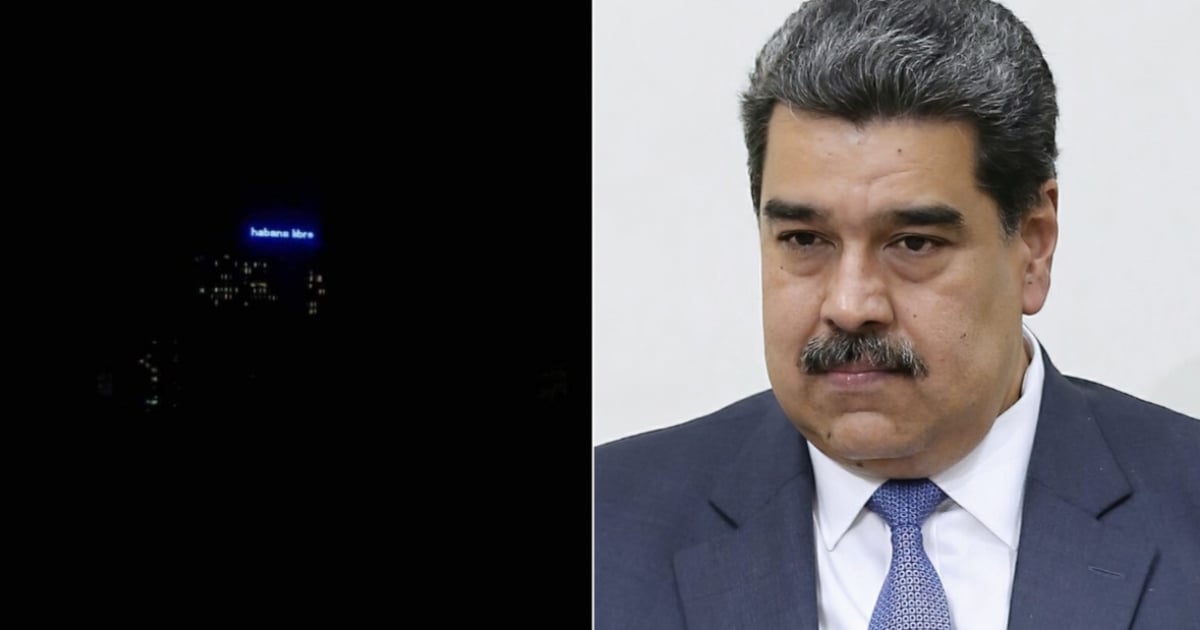
Related videos:
Venezuela, through the state chain Venezuelana de Televisión (VTV), has held the United States responsible for the massive blackout affecting Cuba since October 18. The government of Nicolás Maduro stated that the energy crisis on the island is a result of the "economic war" and sanctions imposed by the U.S., labeling them as an unfair blockade and a violation of human rights. The statement highlights “the efforts of the heroic Cuban people and President Díaz-Canel,” and calls on the international community, especially the countries of Latin America and the Caribbean, to support Cuba and reject the U.S. accusations of terrorism.
Let us remember that on August 30, Venezuela experienced a nationwide blackout, which many citizens perceived as a strategy by the Chavismo regime to distract from the severe situation facing the country. Venezuela has been enduring nearly a decade of economic recession characterized by hyperinflation, a rapid decline in the quality of services, and increasingly frequent power outages.
The decline of Venezuelan oil: A part of the Cuban collapse
Venezuelan oil exports to Cuba continue to decline, dropping from 96,300 barrels per day (bpd) in 2011 to just 22,000 bpd in September 2024, a significant reduction compared to the 33,700 bpd recorded in June of the same year. This decline is partly due to the fragility of PDVSA's infrastructure, which has been worsened by power outages, equipment failures, and a lack of investment, compounded by corruption. Although in August, PDVSA and its joint ventures managed to export 925,000 bpd, the highest figure since 2020, it is still far from the 3,120,000 bpd produced in 1998.
Currently, Nicolás Maduro prioritizes markets that guarantee real payments for oil, such as Asia (510,000 bpd) and the United States (212,000 bpd, managed by Chevron), in addition to 97,000 bpd supplied to the Spanish company Repsol. Meanwhile, Cuba is looking for other suppliers like Russia, which sends fuel from Kaliningrad.
In general, Venezuelan exports fell by 9% in September, with 42 ships leaving Venezuelan waters carrying an average of 842,600 barrels per day of crude oil and fuel, as well as 267,000 metric tons of petroleum derivatives and petrochemicals. To reduce its dependence on oil, the country is developing other sectors, such as the export of jellyfish to South Korea.
On the other hand, the South American country is facing a severe political crisis following the electoral fraud in the recent elections and the lack of recognition of Maduro as the legitimate president by several countries.
On July 28, 2024, the elections in Venezuela were marked by reports of irregularities, according to various social media accounts and local media. Among the incidents reported were assaults at polling stations and the takeover of several polling places by chavista supporters. The opposition and citizens expressed concern over the expulsion of international observers and the repression against opposition supporters, escalating tensions in the electoral process.
On July 29, the National Electoral Council (CNE) declared Nicolás Maduro the winner, sparking a wave of protests and rejection from the opposition, which claimed electoral fraud. Opposition leader María Corina Machado stated that the real winner was Edmundo González, presenting documents that indicated his lead. In response to the allegations, Maduro threatened to unleash a revolution if his reelection was questioned, blaming the United States for the crisis and reiterating his willingness to defend his mandate by any means necessary.
Filed under: